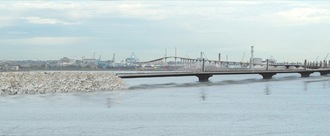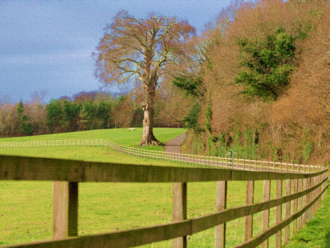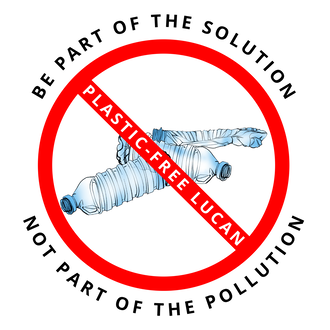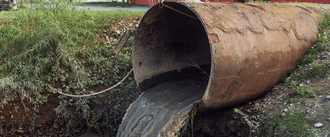- Featured
- Animal Rights
- Anti-racism
- Arts & Culture
- Children
- Climate
- Corporate accountability
- Crime
- Disability rights
- Economic
- Education
- Environment
- Food and Sustainable Production
- Gender Equality
- Governance and Transparency
- Health
- Housing
- LGBT Rights
- Mental health
- Northern Ireland
- Planning
- Privacy and Data Protection
- Rural Inequality
- Social Justice
- Trade
- Transport and Infrastructure
- Workers' Rights
- More
-
Community Objection to a Quarry in RaphoeBonar's Quarries are seeking permission for 25 years to open an old quarry that has already adversely affected the lives of residents of this heritage town under planning number 1952015. It has gone unnoticed by most of the community during the COVID-19 pandemic but those who remember the building damage, noise pollution, air pollution and misery caused when this quarry was last operated will not want it to return. Unbelievably, the proposal is within just 800 metres of some 23 homes, a secondary school, businesses, multiple farms and within 1 km of Raphoe, a heritage town with a population of over 1000 people and with huge historical and cultural significance. Raphoe is also home to three other schools, a cathedral, a chapel, churches, numerous businesses including a livestock mart, a tourism attraction in Oakfield Park, forestry and many farms. We oppose the noise, dust, vehicular traffic, the safety record of the applicant, water pollution, vibration, the location and the release of any poisonous landfill leachate into aquifers, and second the views of the 18 page objection already lodged. There are many more suitable locations for a quarry but this one, on the edge of our town, simply must not go ahead. Therefore we need as many people as possible to CLICK BELOW TO BACK THIS PETITION and oppose living beside a functioning quarry in Raphoe for the next 25 years.462 of 500 SignaturesCreated by Raphoe Community
-
Electric vehicles are not safe for rainforestWhile the emissions of conventional cars are terrible for the environment and human health, electric vehicles are anything but clean – their production requires an enormous input of energy and raw materials. About 1,800 kilograms of metals and other materials are used in a mid-range electric car such as the Chevrolet Bolt, which marketed in Europe as the Vauxhall/Opel Ampera-e. The European automotive industry imports almost 100% of these materials – and a significant share of them come from mines in tropical countries and rainforest areas. Lithium-ion batteries, the heart of electric vehicles, are no exception here. The Chevrolet Volt battery pack, for example, weighs 440 kg, which is 10,000 times the weight of a smartphone battery (44 gr). Besides lithium, manganese and graphite, they contain about 10 kg of cobalt and 30 kg of nickel. In the case of nickel mining, Indonesia and the Philippines are at the forefront of global production. Two-thirds of the world's cobalt comes from the Democratic Republic of Congo. Cobalt, copper and nickel are mined along an 800-kilometer belt in the rainforest in the south of the country – under catastrophic working conditions, at starvation wages, and by tens of thousands of child laborers. In the case of iron for steelmaking, Brazil is a leading supplier of the automotive industry. The country is also in first place for copper, followed by Peru and Chile. The mines of international corporations are thus eating into the rainforests to satisfy the resource hunger of the manufacturers of “clean” electric vehicles. Simply clogging the roads with millions of EVs is not the answer to our present problems. Tell the EU that we need a fundamental rethink of policies related to raw materials and transport to put them on an environmentally friendly foundation.14 of 100 SignaturesCreated by Slava Digriz

-
Close Northern Ireland schools, colleges & early years now!This is a major challenge to the health well being of all our communities. It is crucial to stop the spread of the infection. It is recognizing the right of all to health and life.115 of 200 SignaturesCreated by Siobhan Mc Laughlin
-
Re-open the NCAD community GardenBecause we all liked it the way it was ! And It was also a resource for locals in the D8 area who aren't students at the college; be they people from the flats, students from other colleges, unemployed, former drug addicts, you name it.57 of 100 SignaturesCreated by octavian fitzherbert
-
Free Dublin land reserved for Eastern Bypass motorway to be used for Housing and Public TransportThe short version: Land in the East Wall and Booterstown areas of Dublin is reserved for a hypothetical Eastern Bypass motorway (one with extremely negative environmental consequences). Dublin City Council want to rezone the East Wall land for housing. The Booterstown corridor could be used as a public transport corridor instead. But the Eastern Bypass' status in national planning documents means both of those critical needs are being blocked. We want the government and relevant authorities to change this by admitting that the Eastern Bypass is a permanently dead project, removing it from planning, and allowing the land to be used for something worthwhile. Long version: Dublin's Eastern Bypass was always a massive environmental issue — it is planned to be built across Sandymount Strand to provide an extension of the M50 motorway, for very limited benefit. The construction of this motorway is now also likely illegal under Irish government climate objectives and obligations, just as the 3rd Heathrow runway in the UK was recently declared to be illegal. Ireland is already likely to face fines because of our failure to reduce emissions, and the expansion of car usage is absolutely at odds with that target. The reserved space for the Eastern Bypass is also now blocking the construction of housing in Dublin city by preventing rezoning, as outlined in the Irish Times: https://www.irishtimes.com/news/social-affairs/housing-plan-in-dublin-halted-to-facilitate-eastern-bypass-1.4189623 The Eastern Bypass is extremely unlikely to ever be built — the environmental consequences of the proposed road alone massively outweigh the very minor benefits it might bring to car drivers. It has been kicked around for 50 years with truly minimal progress. It is so politically, fiscally, environmentally, and socially toxic that it almost 100% guarantees no government will ever even try to build it. So why are we continuing to retain it in our plans and therefore stop the reserved land being freed up? That reserved land is, at this point, merely blocking other types of useful development to facilitate a dead project. Most outrageously, the reserved land is also preventing the construction of homes in a housing crisis (as seen in the Irish Times article linked above). Most of the reserved land on the Sandyford to Booterstown alignment would be absolutely ideal for use in constructing a high-quality rapid bus corridor (connecting the Luas and the DART), or providing the space for a Luas spur that could serve countless new homes and the students of UCD. The Irish government, Dublin City Council, and Dun Laoghaire-Rathdown County Council must immediately work to remove this outdated, unwanted project from their plans, and allow the land to be reused.93 of 100 SignaturesCreated by Matthew Johnston

-
Save 270 Old Beech Tree in St.Catherine's ParkThis tree is 270 years old and it was always there. It won't fall suddenly itself. Despite the risk assesed with its condition the alternative for allowing the tree to decay naturally could be reavulated and taken into consideration.(e.g. providing supporting construction to the tree). Trees are essential to our existence. They provide us with oxygen, reduce carbon and give life to the world's wildlife. Saving our trees will reduce greenhouse gases, protect our wildlife and bees, and make sure our environment and communities can be enjoyed by future generations.99 of 100 SignaturesCreated by Beata C
-
Environmental Rating For BusinessesThe crisis of plastic pollution is reaching a tipping point with plastic pollution set to double by 2030. We need to take drastic action to reduce the amount of plastic in our environment. Individuals are making efforts to reduce their own consumption of plastics. Now it’s time for businesses to show a willingness to tackle this problem. Back in May 2019 Cllr Madeline Johansson got a motion passed in South Dublin County Council on our behalf calling on SDCC to implement an environmental rating system for local businesses, similar to a hygiene rating system. Unfortunatley there has been no action by SDCC to date. Please sign our petition to pressure on SDCC to act and implement an environmental rating system for businesses so that we can try to combat plastic pollution.90 of 100 SignaturesCreated by Plastic Free Lucan
-
Save the beesWe have 21 species of Bumblebee and 77 Solitary Bee species in Ireland and one-third of our bee species are at risk of extinction. One in three spoonfuls of our food is pollinated by bees; in a world without bees and other natural pollinators, we won't have enough food to feed the world.83 of 100 SignaturesCreated by Rachel Reid
-
Save the bees in Northern IrelandNorthern Ireland is home to many rare and endangered species of bee. It supports the largest population in the UK of Northern Colletes, a priority conservation species. Yet, conservation charity Buglife NI says that 21 species are at risk of extinction unless action is taken.21 of 100 SignaturesCreated by Nicola Browne
-
BIN WAVIER FOR ALL ON LOW INCOMETO HELP CLIMATE CHANGE AND STOP ILLEGAL DUMPING6 of 100 SignaturesCreated by Chris Mc Namara
-
Bigger Fines for PollutersFines for polluters in Northern Ireland are miniscule. In February Mash Direct were fined only £2,000 for illegal discharge to the sewer network in Northern Ireland which was described by NI Water as showing 'complete disrespect for the sewer network'. In 2016, a renewables company which ran an unauthorised anaerobic digester that caused a fish kill in a a tributary of an important salmon river was fined only £1,600.11 of 100 SignaturesCreated by Nicola Browne
-
Make Clare Elections Poster FreeNow that the election is over we have time to evaluate how we canvass during elections. Many posters have been defaced or destroyed by strong winds rendering them only suitable for landfill. Before everyone runs out to get more printed how about we reassess our position? We could have central display boards in every town and village where all candidates can display one A4 poster. These notice boards could be in libraries, petrol stations, community centres, health centres and other places willing to display all candidates. We could have a webpage per county with all candidates information and online links. We have the ability to imagine new ways of doing things that don't have such a negative impact on our environment. Let's do it! To Clare County Council please pass a motion to ban election posters, dedicate a webpage for candidates, identify noticeboards and collaborate or host participatory workshops to gather ideas with a view to moving away from election posters.128 of 200 SignaturesCreated by Theresa O'Donohoe



.png)








